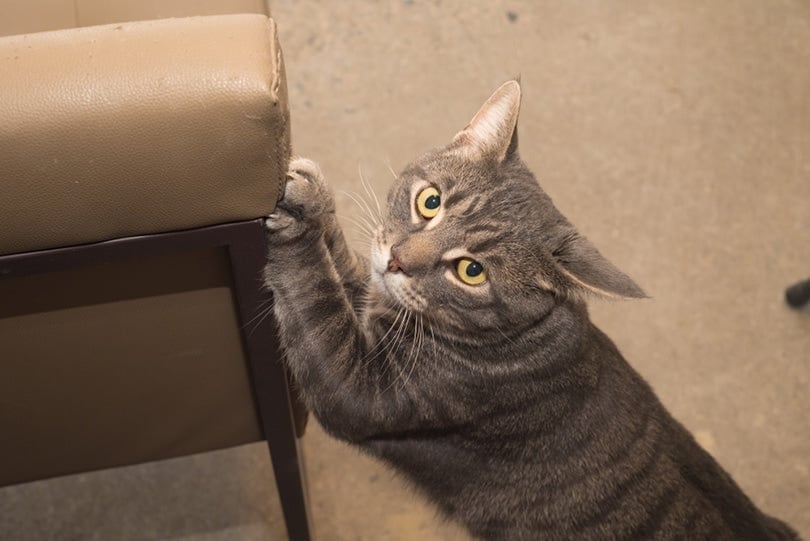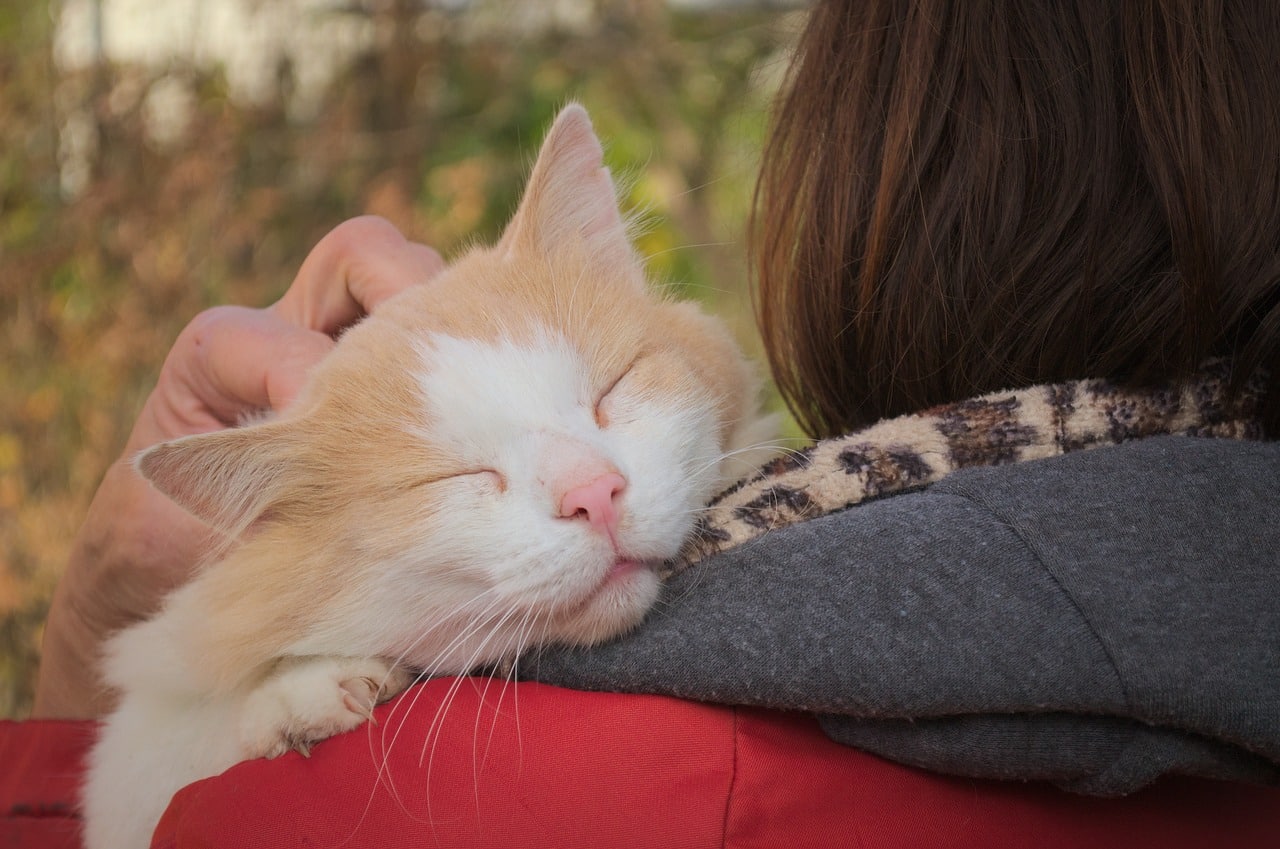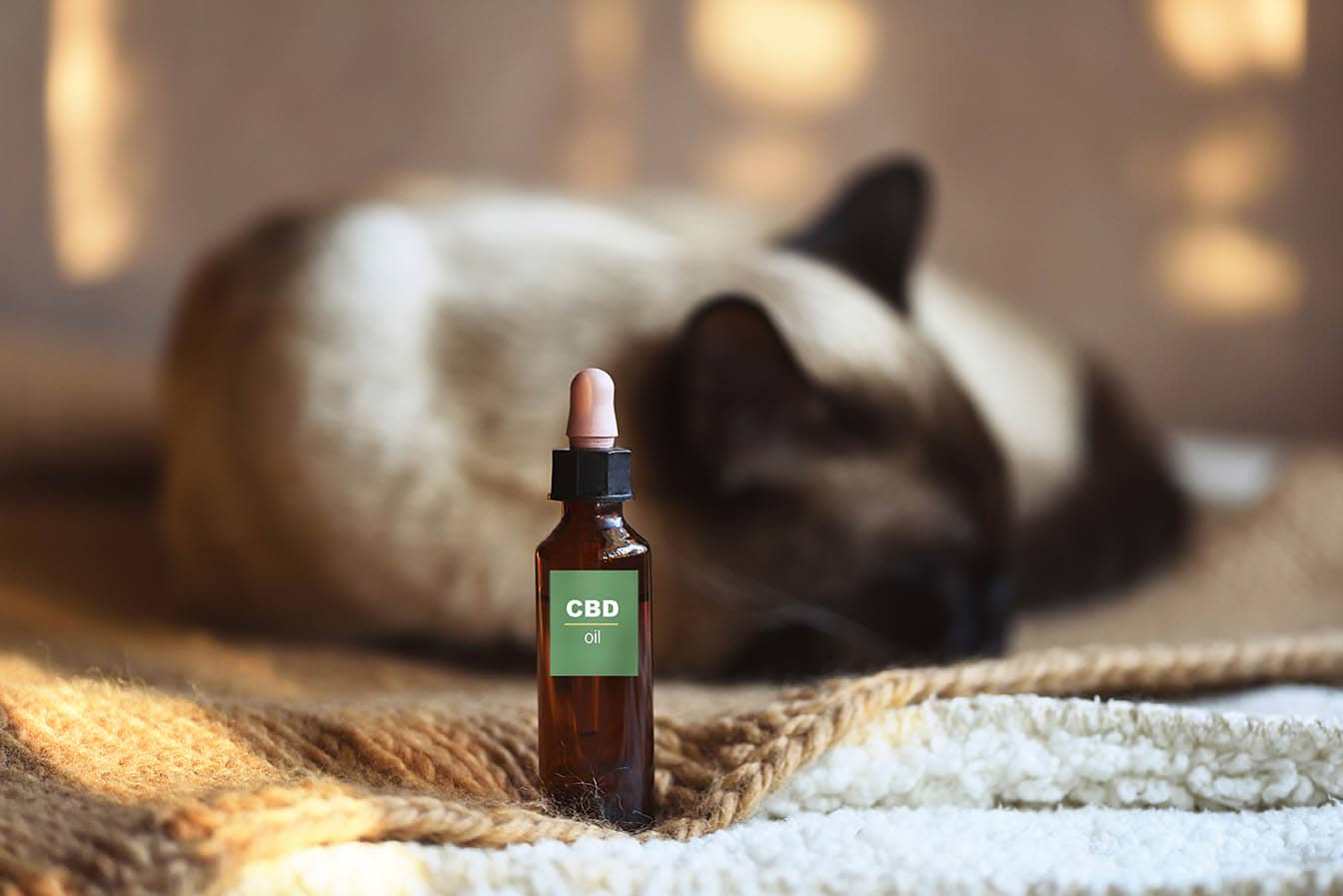It can be easy to buy into the idea that cats are antisocial, aloof creatures. After all, most cats spend a good part of their time alone, whether under your bed, in a closet, or in some other hiding spot.
If you are preparing to go on vacation, you may think your cat won’t even notice you are gone. However, is that really the case? Are cats as distant and detached as they appear? To learn more about loneliness in cats and how to best prepare your cat for some extended time apart, keep reading below.
Do Cats Get Lonely When You Go on Vacation?
Contrary to popular belief, cats are not antisocial creatures1. In fact, under the right circumstances, they can be incredibly social. The misunderstanding tends to come from how cats socialize.
Cats prefer to display affection in their cat-like way, such as occasionally rubbing up against you or sitting next to you on the couch. While some cats are more affectionate in ways that humans most readily recognize, such as cuddling, many cats socialize with a bit of distance. If your cat tends to just sit in the same room as you, that is his way of socializing!
While cats enjoy alone time, they will quickly grow lonely if they are isolated for prolonged periods. That means that while you are on vacation, your cat almost certainly misses you, and he is definitely lonely.
Signs Your Cat May Be Lonely

It may be difficult to spot the signs that your cat has been lonely, but there are a few obvious indications. Behavioral issues are a notable sign and can be destructive, such as tearing at furniture or knocking things over. Sometimes, it may be slightly more subtle, such as your cat suddenly becoming reclusive when you return. Other times, the signs may be a lot more messy, such as your cat seemingly ignoring his litter box and going on your bed instead.
All of these situations are surely things you would like to avoid. To try and minimize your cat’s feelings of loneliness and isolation, there are some steps you can take to help him out.
How to Help a Lonely Cat
Before you take off for vacation, you will want to ensure that your cat’s environment is suitable. This means that he needs access to all the things he normally would have access to so that his routine is not disturbed.
You will also want to provide him with plenty of entertainment. You can leave his toys out for him to play with, so he doesn’t get bored. If you have the space for it, consider purchasing a cat tree so that your cat can explore and scratch the material. Keeping your cat relaxed will also be helpful. You can keep the radio or television playing for him at allow volume, so he can hear human voices while you are gone. Leaving one of your unwashed shirts on your bed can also comfort your cat, as the shirt will have your scent on it.
While you are gone, make sure that you hire a cat sitter. It is best if you hire someone who will not just give your cat food, clean the litter, and then run out. Your cat needs people around for socialization and playtime.
None of this will prevent your cat from being entirely lonely, as the root of his loneliness is that he misses you. However, it will help distract him from his loneliness and keep him entertained until you return.
What to Consider Before You Leave for Vacation

Before you pack your suitcases and hop in the car, take a moment to consider what your cat’s experience alone will be like. Although it is likely inevitable that he will miss you, you can still do your best to make his experience as pleasant as possible.
Avoid Boarding Facilities if Possible
Although a boarding facility may sound like a convenient way to ensure your cat is getting his needs met while you are gone, they can be extremely stressful for cats. Think about it from your cat’s perspective; they have been removed from their house, placed in an unfamiliar location surrounded by strange people and animals, and their favorite person in the world isn’t there to comfort them. When you think about it that way, the boarding facility isn’t ideal.
It is best if you can get a pet sitter instead. Although your cat may still be uncomfortable with a stranger in the house, at least he will be in a familiar and comfortable space. It will be even better if the pet sitter you find is someone your cat is already friendly with.
Take Measures to Soothe Your Cat’s Anxiety

Your absence is sure to cause some stress in your cat. Leaving your unwashed shirt out can help to calm your cat, but if your cat needs a little extra soothing, there are some ways you can help. For instance, pheromone plug-ins can release calming pheromones that ease your cat’s anxiety.
Another great way to reduce your cat’s anxiety is to ensure that his routine is not disturbed. Tell your pet sitter what times your cat will be expecting his food so that they can try to maintain your cat’s schedule.
Conclusion
Although it may be difficult to tell, our cats truly miss us while we are gone. You can take some steps to minimize the loneliness and isolation your cat feels, but in the end, your cat won’t be happy again until you return. It may take your cat a little bit to open up to you again after a long time apart, but once he does, be sure to shower him with tons of affection and attention.
Featured Image Credit: Jumpstory












